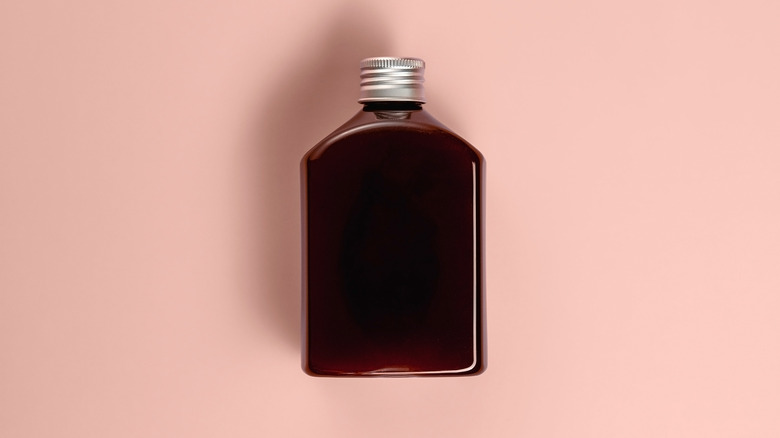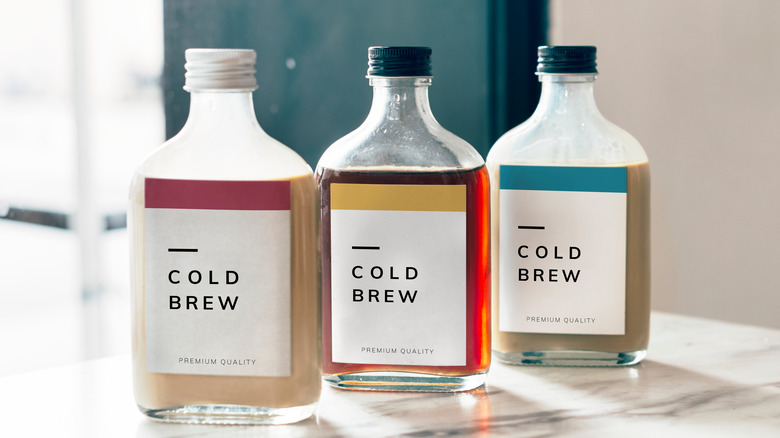The Real Reason Packaged Cold Brew Doesn't Need To Be Refrigerated
Next time you're standing in line for that nitro cold brew, pat yourself on the back — your body will thank you for that coffee choice. Caffeine fans and critics alike might be surprised to learn that cold brew can boost your metabolism, promote a good mood, stimulate neurological function, boost heart health, reduce the risk of type two diabetes, and is easier on your stomach, according to Healthline.
Not only does it boast an impressive array of health benefits, but making cold brew at home can be a great time saver. You can make a massive batch of cold brew in one take and then store it in the fridge, says Food Network, which is much quicker than waiting for a hot mug to fill — especially on days when you're already running late for work. At-home baristas can invest in a cold brew maker (like the Mizudashi model from Hario), but you can also make cold brew in a French press or even a basic mason jar (via Martha Stewart).
The namesake "cold" in cold brew might lead fans to believe that the beverage needs to be kept refrigerated. After all, most supermarkets keep their cold brews and concentrate in the fridge aisle. But, the truth is, despite what its name might imply, cold brew doesn't need to be kept cold at all. So, why do retailers refrigerate it?
Retailers want cold brew to look fresh
Bob Pellegrino, Postdoctoral Fellow at Monell Chemical Senses Center and former coffee company consultant (via The Takeout), says it all comes down to advertising. The reason most cold brew brands are displayed in your grocery store's refrigerated section, Pellegrino says, isn't because they actually need to be kept cool: it's to convey the idea of freshness. In actuality, cold brew is made from coffee grounds and water — neither of which is perishable. Cold brew is made by steeping coarsely ground coffee in cold or room temperature water for 10-20 hours (per Food Network), then straining. Before you add creamer, packaged cold brew will keep just fine in the pantry. According to coffee purveyor Essence, cold brew doesn't even have to be drunk cold: you can warm that cold brew up and sip it out of a mug if that's how you like your cuppa.
After opening your batch does need to be refrigerated to stay fresh, says Coffee Brewster — it'll keep in the fridge for up to two weeks. But, if your brew starts to taste a little off, rest assured: it can still go to good use. Brent Wolczynski of Stumptown Coffee Roasters says to dilute one part expired cold brew with two parts water and use those leftovers to water your plants. Common houseplants English ivy, monsteras, philodendrons, and peperomias thrive in acidic soil, via Houseplant Heaven. Cold brew is not just a treat for humans.

